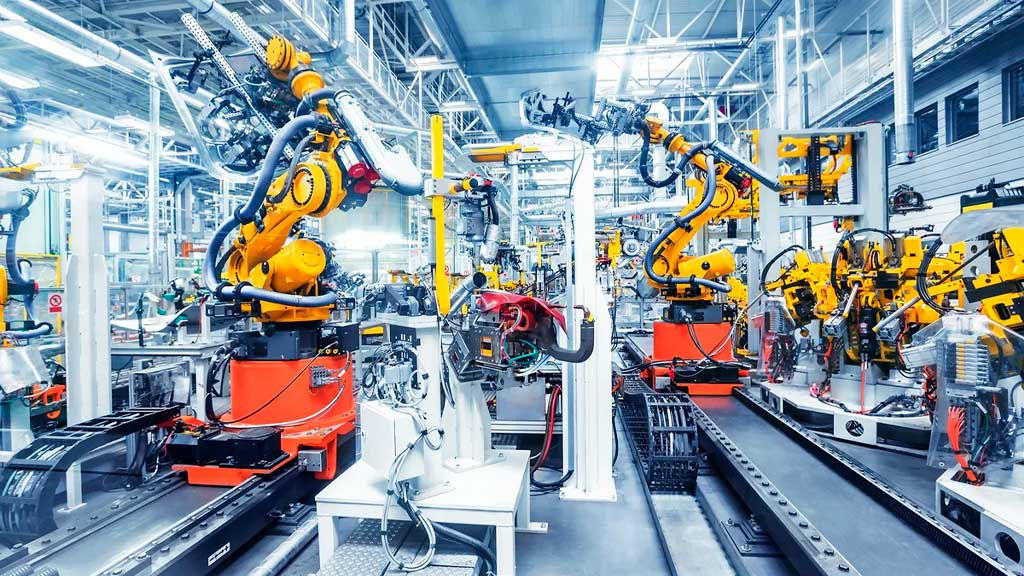As industries face increasing pressure to adopt sustainable practices, the role of industrial equipment has become more critical than ever. Modern machinery not only contributes to operational efficiency but also plays a significant part in reducing environmental impact. This article explores how industrial equipment can support sustainability efforts across various sectors.
Energy Efficiency
One of the most significant contributions of industrial equipment to sustainability is energy efficiency. Many manufacturers are investing in advanced machinery designed to consume less energy while maintaining high performance. Features of energy-efficient equipment include:
- Variable Speed Drives (VSDs): These allow motors to operate at different speeds based on demand, significantly reducing energy consumption.
- Smart Controls: Automation and smart sensors optimize energy use by adjusting operations in real-time.
Implementing energy-efficient equipment can lead to substantial cost savings and lower greenhouse gas emissions.
Reduced Waste
Industrial equipment plays a vital role in minimizing waste through improved processes. For example:
- Precision Manufacturing: Technologies like CNC machines and 3D printing enable precise material use, reducing scrap and waste.
- Recycling Systems: Equipment designed for recycling and repurposing materials helps divert waste from landfills and supports circular economy initiatives.
By optimizing production processes and minimizing waste, industries can significantly reduce their environmental footprint.
Water Conservation
Water is a critical resource in many industrial processes, and equipment advancements are helping conserve this valuable resource. Techniques include:
- Closed-Loop Systems: These systems recycle water within the production process, minimizing consumption and wastewater generation.
- Efficient Cooling Systems: Equipment that uses less water for cooling, such as air-cooled chillers, reduces overall water usage.
By adopting water-efficient technologies, industries can address water scarcity challenges while improving operational efficiency.
Emission Control
Industrial processes often generate emissions that can harm the environment. Advanced equipment is being developed to control and reduce these emissions:
- Filtration Systems: High-efficiency particulate air (HEPA) filters and scrubbers help capture harmful particles and gases before they are released into the atmosphere.
- Low-Emission Technologies: Equipment designed to operate with low emissions, such as electric forklifts or hydrogen-powered vehicles, helps minimize air pollution.
Investing in emission control technologies not only complies with regulations but also enhances corporate responsibility.
Lifecycle Assessment
Understanding the entire lifecycle of industrial equipment—from production to disposal—is essential for sustainable practices. Manufacturers are increasingly adopting lifecycle assessments (LCAs) to evaluate the environmental impact of their machinery:
- Material Selection: Choosing sustainable materials for equipment production can significantly reduce environmental impact.
- End-of-Life Management: RINA Jet-Mill, Equipment designed for easy disassembly and recycling contributes to sustainability goals by minimizing waste.
By focusing on the lifecycle of equipment, industries can make more informed decisions that align with their sustainability objectives.
Innovation and Automation
The integration of innovative technologies and automation is reshaping the industrial landscape, promoting sustainable practices through:
- IoT and Data Analytics: Smart sensors and IoT devices collect data that helps optimize operations, reduce waste, and improve resource management.
- Robotics: Automated systems increase efficiency, reduce human error, and enhance precision, leading to lower resource consumption.
Embracing these technologies allows industries to operate more sustainably while maintaining competitiveness.
Supply Chain Sustainability
Equipment is also instrumental in promoting sustainability throughout the supply chain:
- Sustainable Sourcing: Equipment that enables manufacturers to source materials sustainably contributes to overall supply chain efficiency.
- Logistics Optimization: Advanced logistics equipment helps streamline transportation, reducing fuel consumption and emissions.
By optimizing the supply chain, industries can ensure that sustainability is a priority at every stage of production.
What is Supply Chain Sustainability?
Supply chain sustainability refers to the management of environmental, social, and economic impacts throughout the entire supply chain—from raw material sourcing to product delivery and end-of-life disposal. It encompasses:
- Environmental Sustainability: Reducing carbon footprints, waste, and resource consumption.
- Social Responsibility: Ensuring fair labor practices, community engagement, and human rights considerations.
- Economic Viability: Achieving profitability while adhering to sustainable practices.
Importance of Supply Chain Sustainability
- Consumer Demand: As consumers become more environmentally conscious, they seek products from companies that prioritize sustainability. Brands that demonstrate a commitment to sustainable practices can differentiate themselves in a competitive market.
- Regulatory Compliance: Governments worldwide are implementing stricter environmental regulations. Sustainable supply chain practices can help companies comply with these regulations and avoid potential fines.
- Risk Management: Sustainable practices can mitigate risks related to resource scarcity, climate change, and social unrest. Companies that prioritize sustainability are often better prepared for unforeseen disruptions.
- Cost Savings: Sustainable supply chain practices often lead to operational efficiencies, reducing waste and energy consumption, which can translate into significant cost savings.
- Enhanced Reputation: A strong commitment to sustainability can enhance a company’s reputation, attracting customers, investors, and talent who value corporate social responsibility.
Conclusion
Industrial equipment plays a pivotal role in advancing sustainable practices across various sectors. From improving energy efficiency and reducing waste to enhancing water conservation and controlling emissions, modern machinery is key to achieving sustainability goals.
As industries continue to evolve, the focus on integrating sustainable equipment will not only help meet regulatory demands but also foster a culture of responsibility and innovation. Embracing these advancements will be crucial for manufacturers looking to thrive in an increasingly eco-conscious world.

